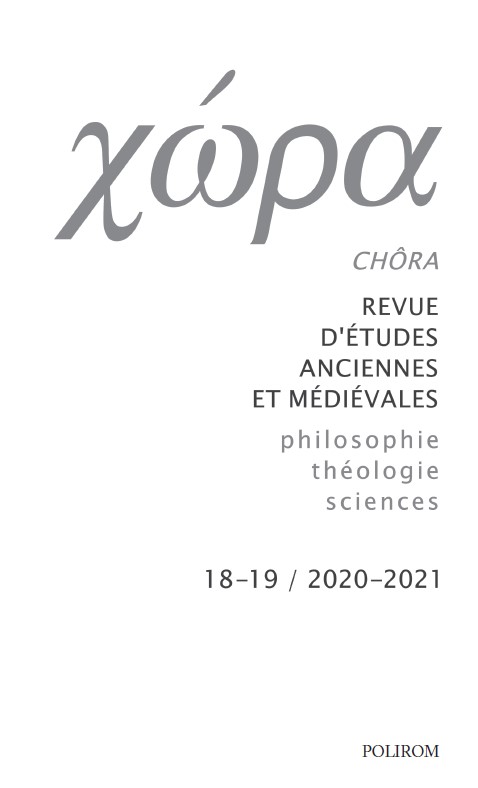ITUTĀ ‑ ĪTYĀ / ĪTYĒ COMME SYNONYMES D’OUSIA DANS LA POLÉMIQUE D’ÉPHREM CONTRE BARDESANE
ITUTĀ - ĪTYĀ / ĪTYĒ AS SYNONYMS OF OUSIA IN THE POLEMIC OF EPHREM AGAINST BARDAISAN
Author(s): Izabela JuraszSubject(s): Christian Theology and Religion, Metaphysics, Ancient Philosphy, Philosophy of Religion, History of Religion
Published by: EDITURA POLIROM S.A.
Keywords: Bardaisan; Ephrem the Syrian; ītutā and ītyā; being and essence;
Summary/Abstract: In his critic of the doctrine of Bardaisan († 222), Ephrem the Syrian († 373) devotes a lot of space to reflection on the meaning of the terms ītutā and ītyā (plural ītyē) which, as he denounces, are used inaccurately by his opponent. These Syriac terms can be translated by “being” or “essence”, but also by “substance”. This observation leads us to propose the comparison with the Greek term οὐσία, taking into account many difficulties raised by its uses in theological discourse. The article is devoted to the analysis of the uses of the terms ītutā and ītyā ‑ by Ephrem and by Bardaisan ‑ in their different ways of describing the divine essence. This comparison reveals the peculiarities of the two systems of thought and also their connections with the Greek philosophical doctrines.
Journal: Chôra. Revue d'études anciennes et médiévales
- Issue Year: 2021
- Issue No: 18-19
- Page Range: 515-544
- Page Count: 30
- Language: French
- Content File-PDF

